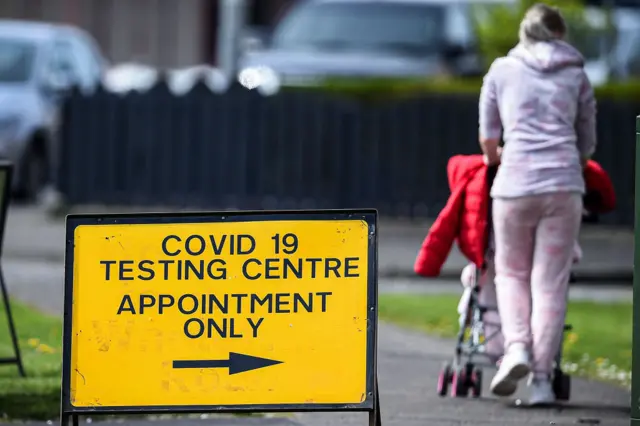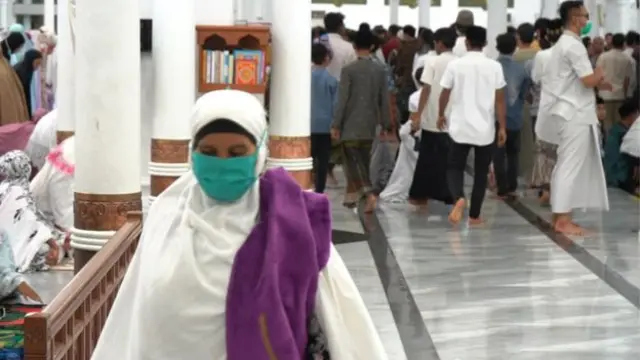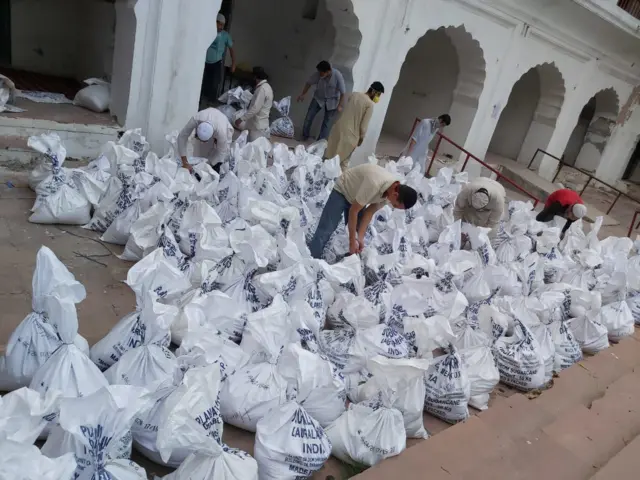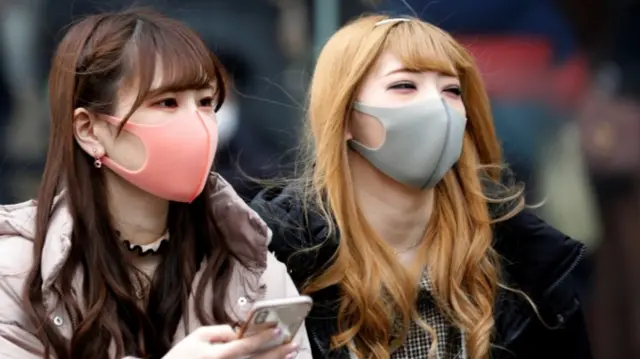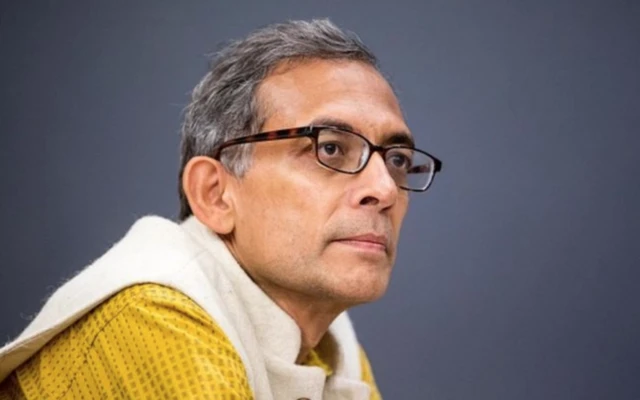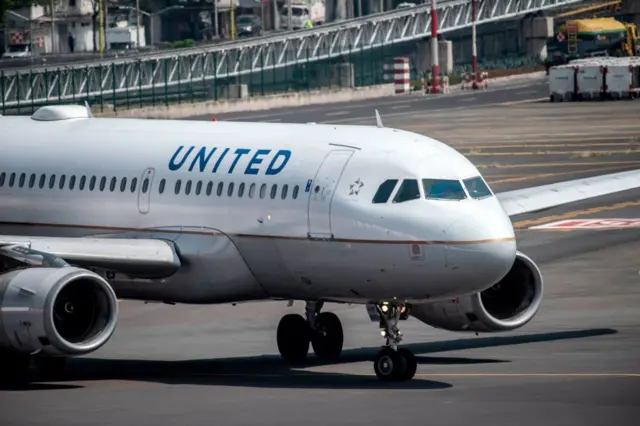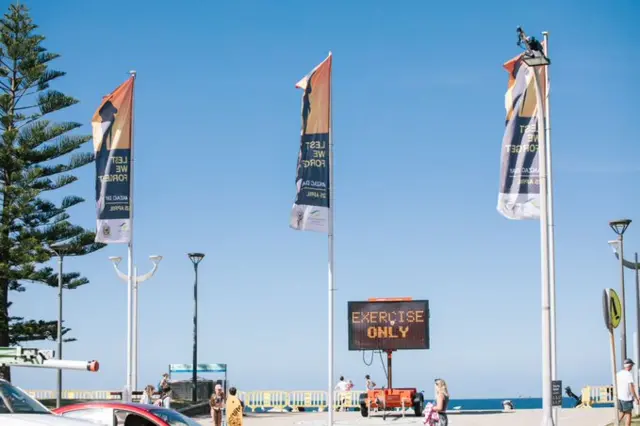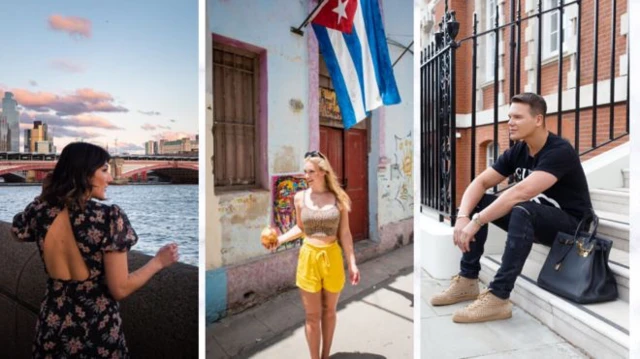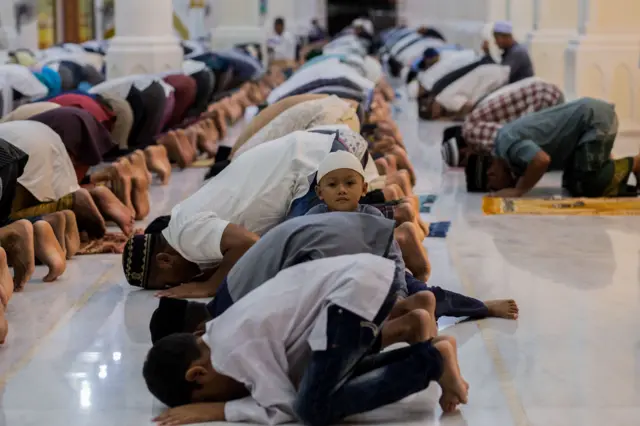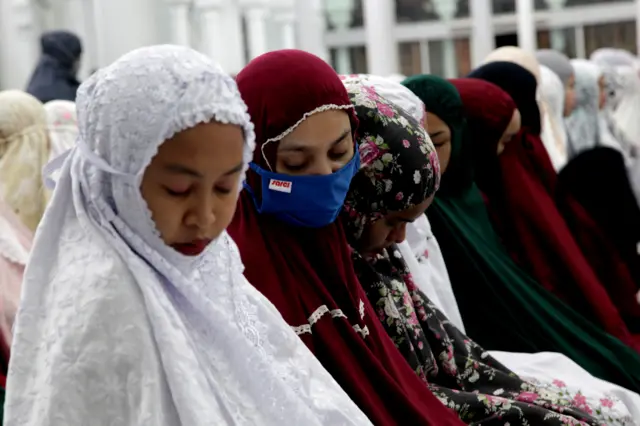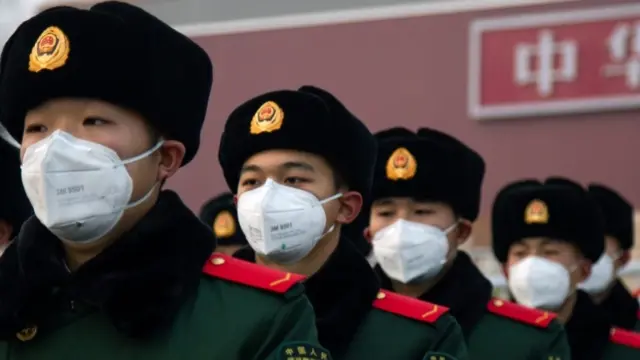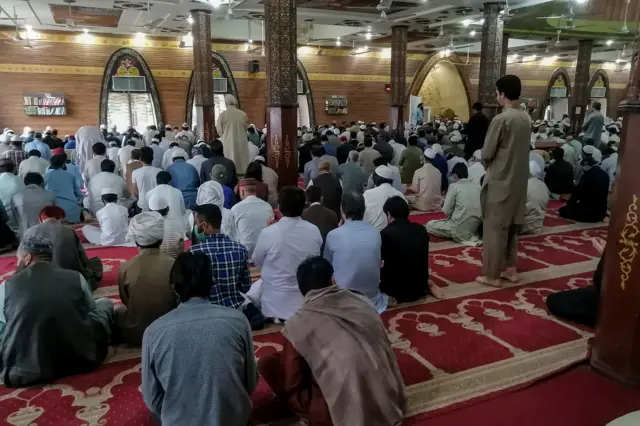An unusual holy month for Muslimspublished at 06:17 BST 24 April 2020
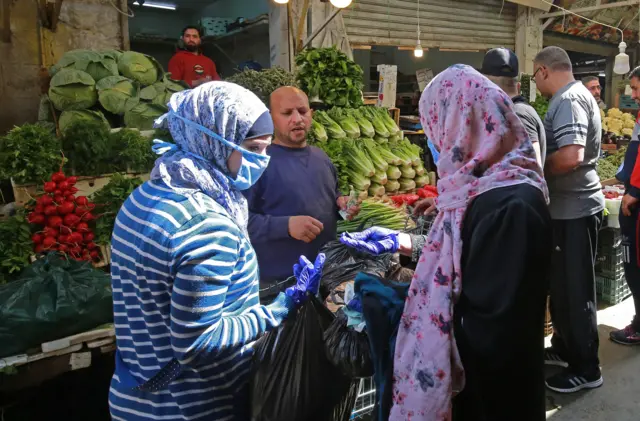 Image source, Khalil MAZRAAWI/AFP
Image source, Khalil MAZRAAWI/AFPWelcome if you're just joining us. We've been looking at Ramadan, which begins today and will be a very different experience for Muslims this year.
Outbreaks of Covid-19 around the world have been traced to religious gatherings, and governments in many Middle Eastern countries have imposed social distancing measures to limit the spread of the disease.
Many have closed mosques and instructed worshippers to perform the special prayers at home. They plan to provide virtual alternatives using TV, radio and social media.
Some have also put in place nighttime curfews and inter-city travel bans, which will limit the ability of people to break their fasts in large groups or away from their homes.
Communal meals traditionally organised for the poor have also been affected. Many mosques and charities plan to distribute pre-packed meals instead.
However, in Pakistan and Indonesia some mosques are going ahead with congregational prayers.
